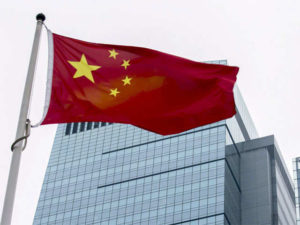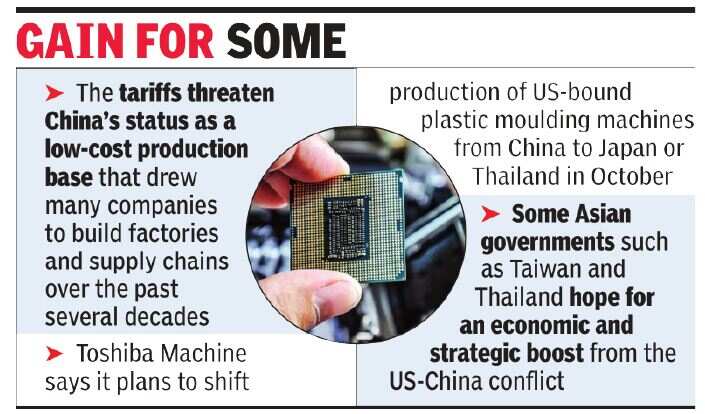 SEOUL/TOKYO: A growing number of Asian manufacturers of products ranging from memory chips to machines tools are moving to shift production from China to other factories in the region in the wake of US President Donald Trump’s tariffs on Chinese imports.
SEOUL/TOKYO: A growing number of Asian manufacturers of products ranging from memory chips to machines tools are moving to shift production from China to other factories in the region in the wake of US President Donald Trump’s tariffs on Chinese imports.
Companies including SK Hynix of South Korea and Mitsubishi Electric, Toshiba Machine Co and Komatsu of Japan began plotting production moves since July, when the first tariffs hit, and shifts are under way, company representatives and others with knowledge of the plans said. Others, such as Taiwanese computer maker Compal Electronics and South Korea’s LG Electronics, are making contingency plans in case the trade war continues or deepens.
The company representatives and other sources spoke on condition of anonymity because of the sensitivity of the issue.
The quick reactions to the US tariffs are possible because many large manufacturers have facilities in multiple countries and can move at least small amounts of production without building new factories. Some governments, notably in Taiwan and Thailand, are actively encouraging companies to move work from China.
The US imposed 25% duties covering $50 billion of Chinese-made goods in July, and a second round of 10% tariffs covering another $200 billion of Chinese exports will come into effect next week. The latter rate will jump to 25% at the end of the year, and Trump has threatened a third round of tariffs on $267 billion of goods, which would bring all of China’s exports to the US into the tariff regime. The tariffs threaten China’s status as a lowcost production base that, along with the appeal of the fast-growing China market, drew many companies to build factories and supply chains in the country over the past several decades.
At SK Hynix, which makes computer memory chips, work is under way to move production of certain chip modules back to South Korea from China. Like its US rival Micron Technology, which is also moving some memory-chip work from China to other Asian locations, SK Hynix does some of its packaging and testing of chips in China, with the chips themselves mostly made elsewhere.
The development was reported by ETRetail.com







